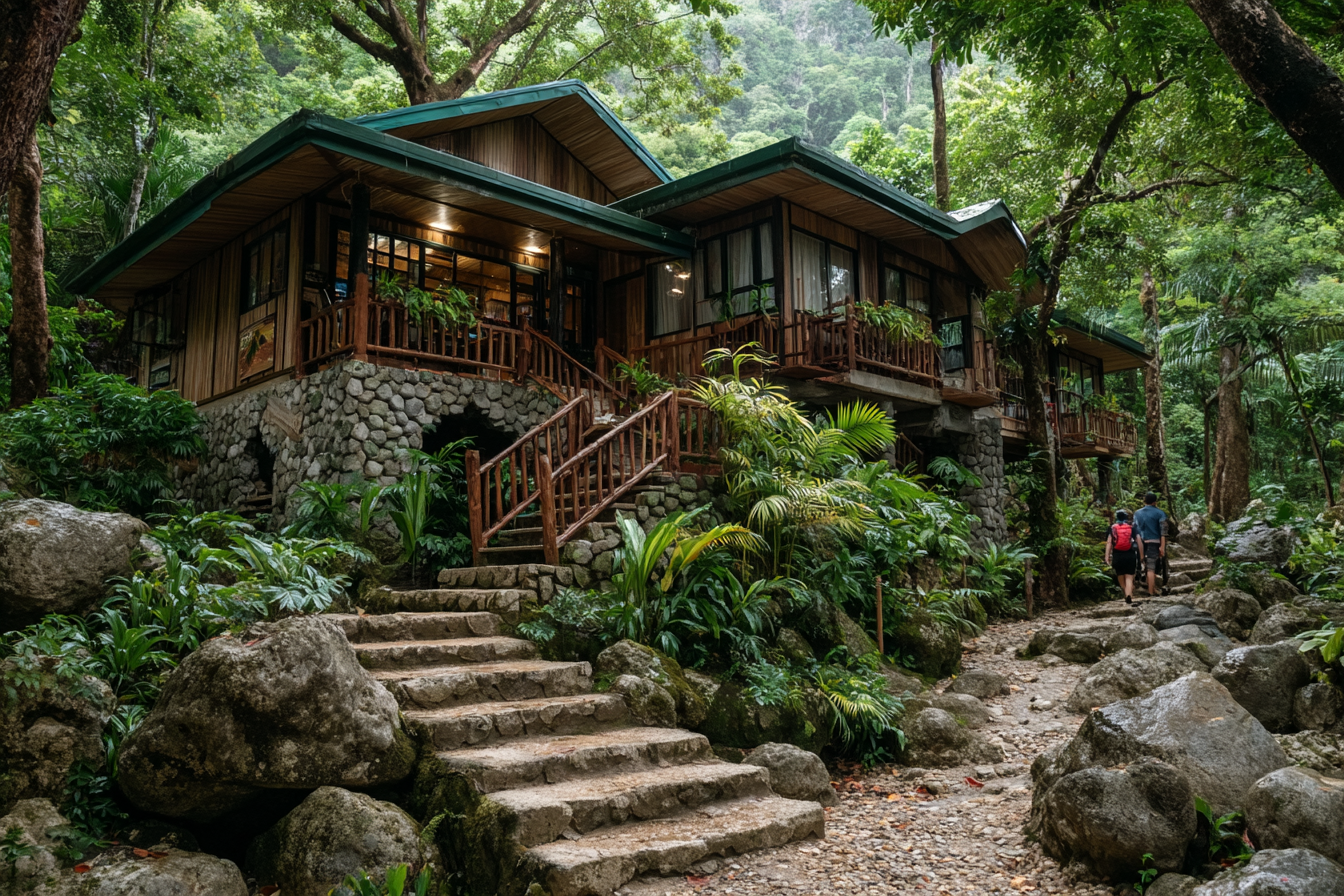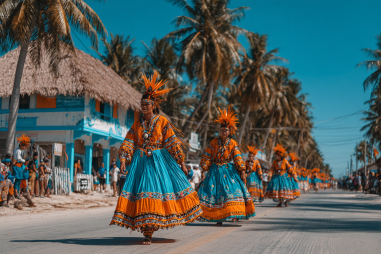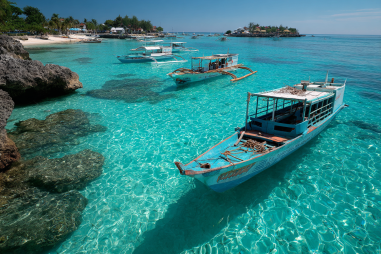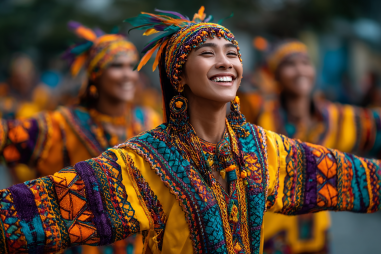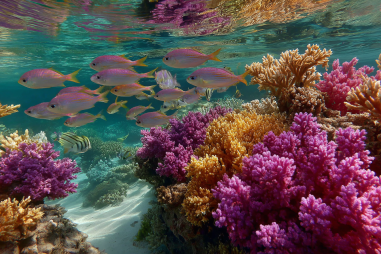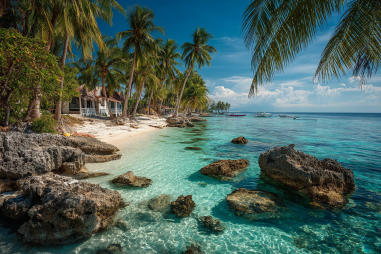Camiguin Island, often referred to as the “Island Born of Fire,” is not just a destination for adventurers and nature lovers but a shining example of eco-tourism done right. Nestled in the northern part of Mindanao in the Philippines, this small island paradise offers lush landscapes, pristine waters, and a rich cultural heritage. More than its natural wonders, Camiguin is deeply committed to sustainable travel practices, ensuring that visitors can immerse themselves in its beauty while preserving it for future generations. Whether you’re hiking to volcanic peaks, snorkeling in vibrant coral reefs, or engaging with local communities, Camiguin’s eco-tourism initiatives invite travelers to explore responsibly and meaningfully.
Overview of Eco-Tourism in Camiguin
Eco-tourism in Camiguin centers around responsible travel that actively supports conservation efforts and local communities. Unlike traditional mass tourism, eco-tourism emphasizes minimizing environmental impacts, promoting local culture, and fostering economic benefits for residents. Camiguin’s geographic setting—with its volcanic landscapes, waterfalls, hot springs, and marine biodiversity—makes it an ideal place for eco-tourism to thrive.
The island’s government and private sectors have collaborated extensively to develop guidelines and facilities that prioritize sustainability. These include promoting low-impact activities like trekking, bird watching, and snorkeling, and limiting large-scale developments that could damage the natural environment. Additionally, many eco-tourism programs on the island aim to educate visitors about the delicate ecosystems and cultural traditions, creating a more enriching travel experience.
Eco-Friendly Hotels and Lodges
Choosing where to stay is a big part of practicing eco-tourism, and Camiguin boasts several eco-friendly accommodations designed with sustainability in mind. Many hotels and lodges on the island implement green practices such as using solar energy, recycling waste, conserving water, and sourcing food locally. These establishments often work with local artisans and suppliers, helping to support community livelihoods while reducing their carbon footprint.
For example, some lodgings are constructed using indigenous materials that blend harmoniously into the island’s natural surroundings, helping preserve the local landscape. Visitors who choose these eco-friendly places not only enjoy comfortable stays but also contribute to conservation initiatives run by the accommodation owners, such as tree planting or marine protection programs.
Responsible Tour Operators
Camiguin is home to several tour operators that specialize in responsible and ethical tourism experiences. These operators prioritize small group sizes to prevent environmental degradation and provide personalized, intimate encounters with nature and culture. They collaborate closely with local communities to ensure tours create positive economic impacts and that local knowledge and traditions are respected and preserved.
Many tours include visits to sustainable farms, cultural heritage sites, and protected natural areas, giving travelers a balanced perspective on Camiguin’s ecosystem and society. Responsible operators also promote “leave no trace” principles, encouraging guests to minimize waste, avoid disrupting wildlife, and respect local customs throughout their visit.
Conservation Projects and Community Participation
A cornerstone of Camiguin’s eco-tourism success is the active involvement of local communities in conservation projects. Many initiatives are co-created and managed by residents who understand the importance of protecting their island’s resources firsthand. This includes reforestation programs to restore volcanic slopes, mangrove rehabilitation to protect coastal areas, and coral reef monitoring to sustain marine biodiversity.
Community-based tourism ventures also allow locals to showcase their skills and heritage through guided tours, handicraft sales, and traditional performances. By participating in these projects, visitors contribute directly to the island’s environmental and economic sustainability, creating a win-win scenario where both nature and people thrive.
Wildlife Protection Guidelines
Camiguin’s diverse flora and fauna, including endemic species and vibrant marine life, require special care from visitors to ensure their protection. The island’s eco-tourism guidelines emphasize responsible wildlife interactions. Tourists are encouraged to observe animals from a distance, avoid touching or feeding wildlife, and refrain from collecting natural souvenirs like shells or plants.
Protected areas such as marine sanctuaries and nature reserves have specific regulations in place, such as designated snorkeling zones and strict waste disposal rules, to safeguard fragile ecosystems. Guides and tour operators play a crucial role by educating visitors on these protocols, helping maintain the delicate balance between enjoying and preserving Camiguin’s natural wonders.
Tips for Eco-Conscious Travelers
Visiting Camiguin eco-consciously means embracing several practices that reduce your environmental impact and enhance your cultural experience. Here are some handy tips:
- Use refillable water bottles instead of buying single-use plastics.
- Choose local modes of transport such as bikes or shared jeepneys.
- Bring biodegradable toiletries and avoid harmful sunscreens near coral reefs.
- Support local businesses by purchasing handmade products and eating at community-run eateries.
- Stick to established trails and avoid disturbing natural habitats.
- Respect local traditions and always ask permission before taking photos of people or cultural events.
By following these simple practices, travelers can make a meaningful difference during their stay in Camiguin.
Future Prospects for Sustainable Travel
Camiguin Island continues to deepen its commitment to eco-tourism as a model for sustainable travel in the Philippines and beyond. Local authorities and stakeholders are exploring additional initiatives such as expanding protected areas, enhancing waste management systems, and promoting renewable energy projects to power tourism facilities.
Education also plays a pivotal role, with programs targeting both residents and visitors, fostering a shared stewardship ethic for the island’s unique environment. As more travelers seek authentic, responsible experiences, Camiguin’s focus on eco-tourism positions it well for long-term prosperity that balances development with conservation.
Ultimately, the island’s story is one of harmony—between volcano and sea, tradition and innovation, visitor and host. It invites all who come to walk gently and leave with a deeper appreciation of the natural world and the communities that protect it.
Embarking on an eco-tourism journey to Camiguin is more than just a vacation—it’s an opportunity to connect with an island that values its natural treasures and cultural heritage. By traveling responsibly, you help ensure that Camiguin’s enchanting landscapes and vibrant communities continue to thrive for generations of explorers to come.

